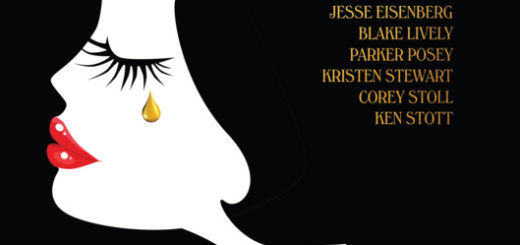KEDI Review
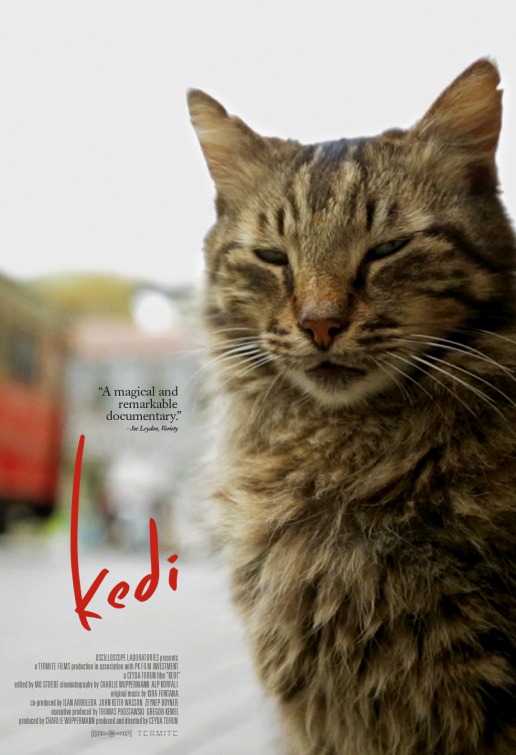
To what extent do you view a cat as having a life as rich and complex as a human being’s? What stops you from considering these quadrupeds as being equal to us? Is it their inability to say, read this review, or to write a review of their own? Are cats lesser beings in your eyes because they seem to lack an understanding of the past and present which would, in turn, grant them the ability to plan and execute complex plans? These questions about animal autonomy have been considered from a philosophical perspective for centuries, and from a psychological one for decades, but rarely have these questions been put to film quite as effectively as they have been in Ceyda Torun’s KEDI.
An effective documentary should always present its audience with a point of view they never otherwise would have confronted or considered, and expand the audience’s perspective, as well as their knowledge. In many ways, Torun gently probes her audience with some surprisingly challenging questions, and creates a highly effective documentary in the process. Unfortunately, it seems she couldn’t quite figure out how to sustain an entire feature film out of this process, but her delightful work deserves praise regardless.
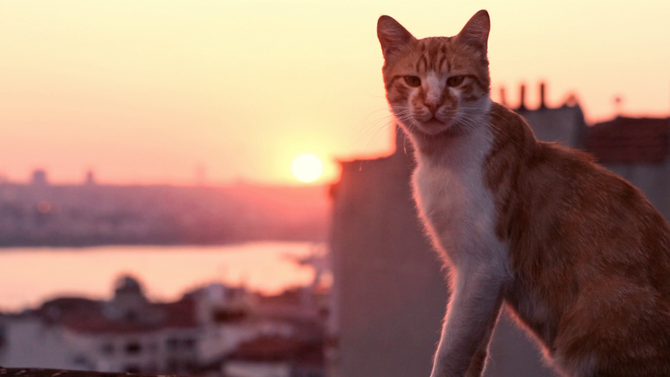
ACAB: All Cats Are Beautiful
KEDI puts a hyper-specific culture under a microscope and examines it as thoroughly as possible. In this case, the culture in question belongs to the street cats of Istanbul who have inhabited the ancient city for centuries, and who hold their own unique position in the city’s social fabric. The citizens of Istanbul feel an enormous warmth and responsibility to care for these cats in turn, and form incredibly complex relationships with many of them in the process. Torun interviews a staggering amount of Istanbul residents and tracks the cats who impact their lives the most. It is Torun’s ability to pull off incredibly well-executed scenes with each cat that truly give KEDI its cinematic merit; realizing how much work went into each scene depicting a day in the life of these cats is staggering.
It’s really this ability to meticulously track a single cat as it runs through a crowded market, or each step in its complex schemes to deliver food to its kittens, that makes KEDI a worthwhile accomplishment anyone can appreciate. Those afraid of a MARCH OF THE PENGUINS-style projection of human emotions onto animals need not worry about KEDI. Any time one of the interviewees seems to be describing emotions and personality traits that seem too complicated for a cat to possess, Torun provides perfect B-roll evidence to support that these cats really do have lives as rich as they are described. The images are so flawlessly stitched together that any insightful viewer will be able recognize that some sort of manipulation had to be going on behind the scenes in order to pull them off, but the important distinction is that this manipulation of reality does not ultimately feel manipulative of the audience. Yes, in order to pull off some of the individual moments, it’s inevitable that a few of them were staged, but Torun’s deeper message rings true regardless.
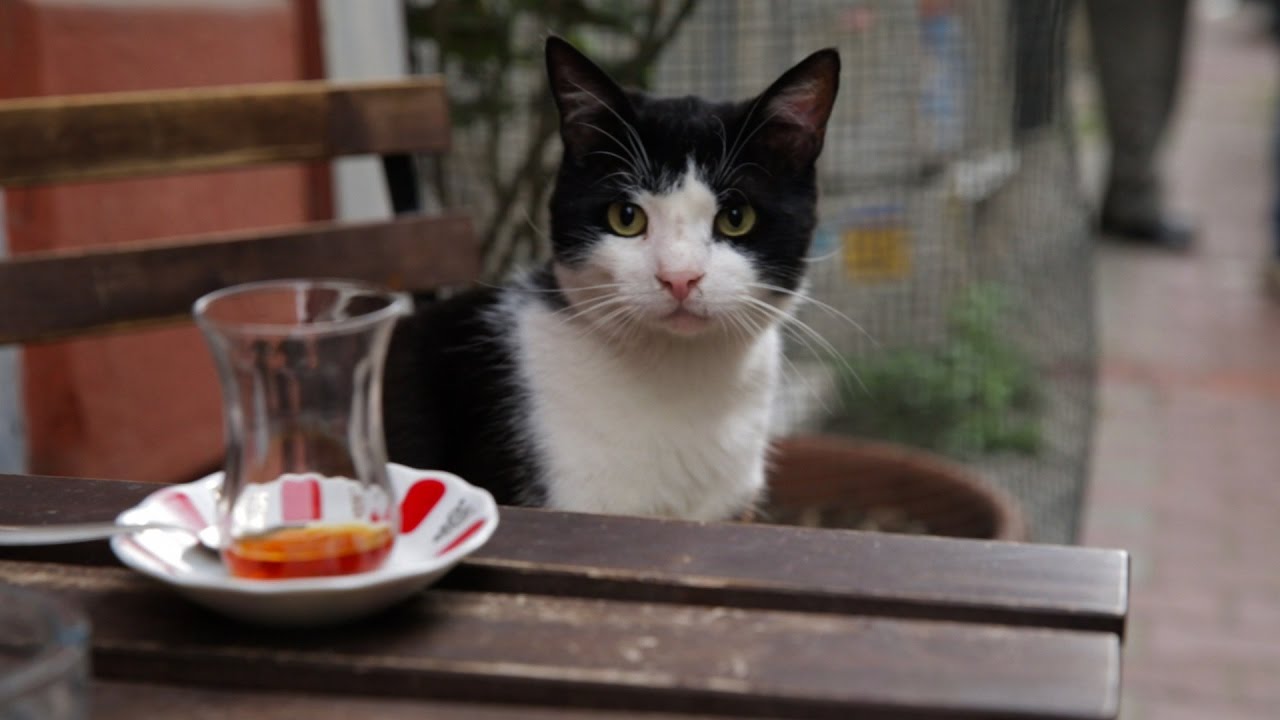
This cat understands the finer points of Turkish tea etiquette better than I ever will
That message is simple: cats are animals that deserve respect, and the practice of respecting cats is good for the wellbeing of a person. Torun even goes farther than this, suggesting that a culture and society are better off if they treat their cats well. That might come across as ludicrous to anyone who doesn’t consider themselves a feline fanatic, but its broader implications should be touching to anyone. Really, what Torun seems to be getting at is that animal rights should be considered human rights, and not separate from them. It’s a radical message, but one that’s not screamed through a PETA megaphone. By taking a more subtle and relaxing approach, Torun’s form more effectively delivers her themes.
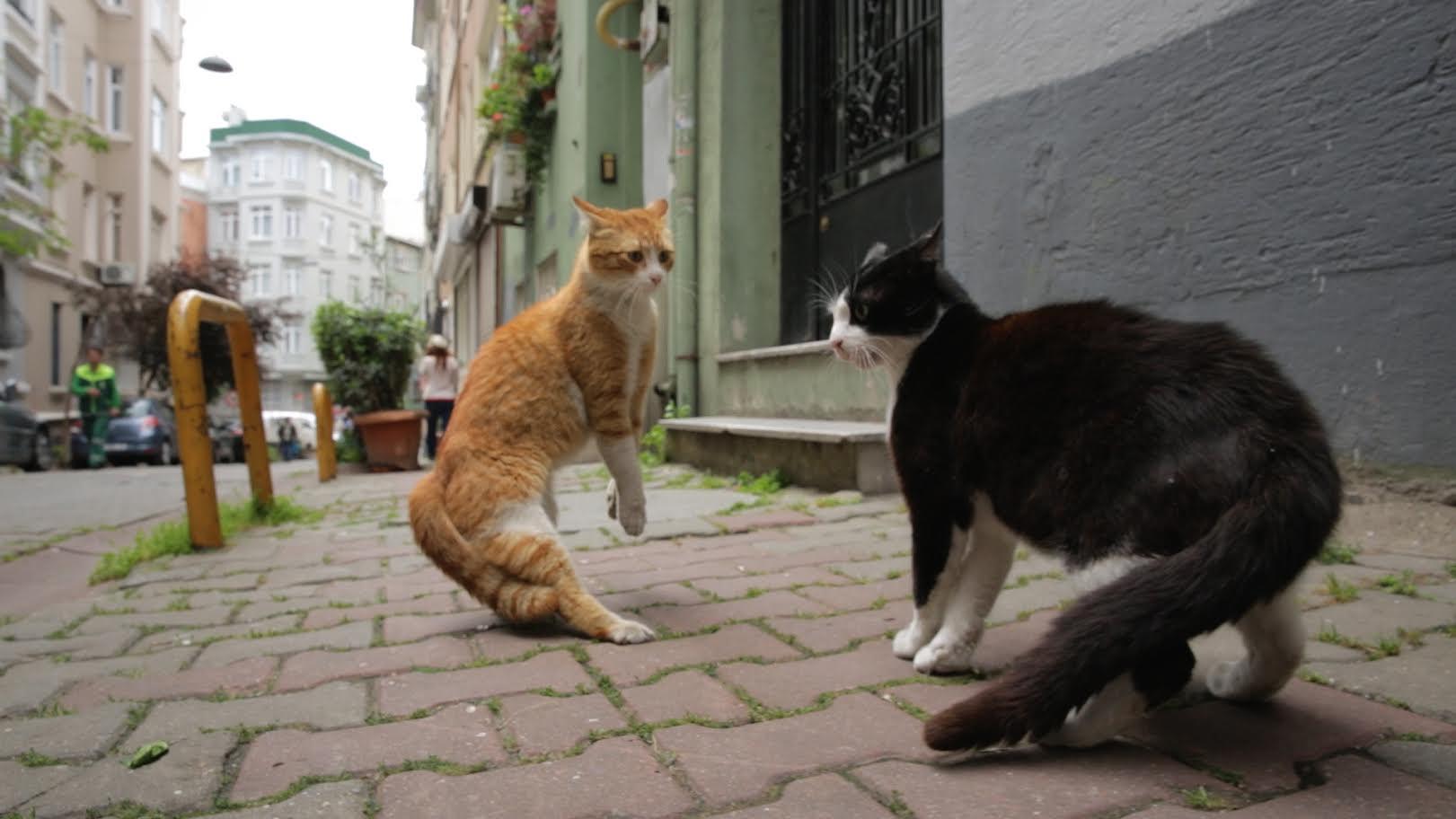
The first rule of Cat Fight Club is meow meow meow-meow-meow
That’s not to say that KEDI is without faults. The film is only 80 minutes long, but after the first 20, it becomes painfully repetitive. It’s because Torun elected to do little to change up her format from one subject to the next. Essentially, the film follows a strict pattern: B-roll of an interesting cat, interview footage describing the cat, more detailed footage following the cat. This can get tiresome for even the most engaged viewer, and certainly doesn’t do much to forward Torun’s goals for the film. What’s more, it’s hard to not feel disillusioned by Torun’s animal-humanist message when you consider the human conflicts currently bubbling just beneath the surface in Istanbul. There’s a sense that everything is easy and nice in Istanbul, which for a narrative film would be acceptable, but feels a little disingenuous for a documentary that is as much about the social climate of a place as it is about some of its inhabitants.
All that aside, KEDI is a highly accomplished, charming documentary that is an easy choice for anyone seeking light entertainment. What’s especially so pleasant about KEDI is that it ultimately doesn’t feel flippant or superficial. Yes it may be politically negligent at times, but it’s emotionally and philosophically rich, which is all any of us should expect from a cat documentary, isn’t it?
Verdict: Recommend

